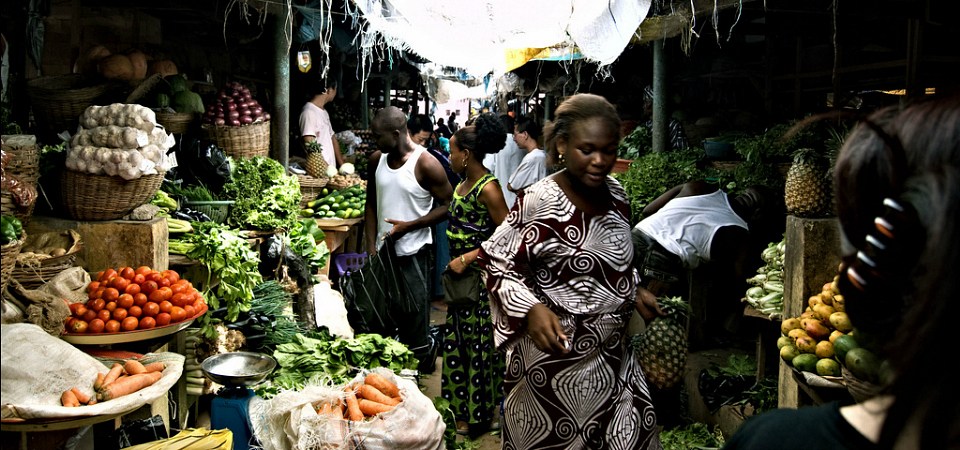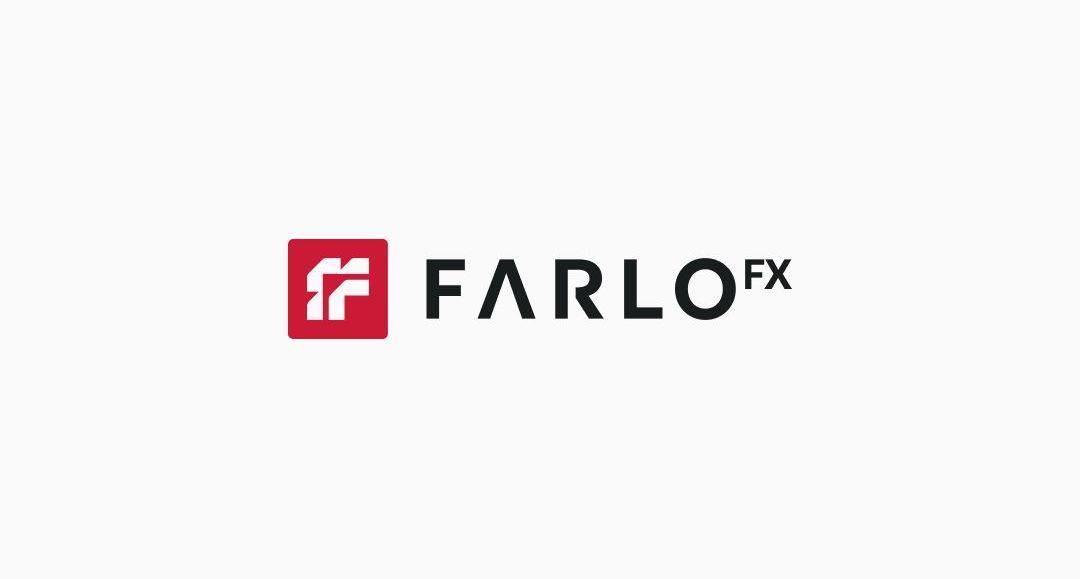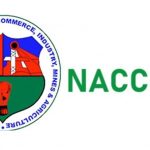Economy
Inflation to Drop to 11.32% in June on Base Effect—FSDH

Modupe Gbadeyanka
For the past two straight months, inflation rate in Nigeria has been trending upward, but if what analysts at FSDH Research foresee is something to take seriously, then a downward movement of the rate should be expected when the National Bureau of Statistics (NBS) releases the figures for the month of June 2019 on Sunday, July 14, 2019.
In May 2019, inflation jumped to 11.40 percent, but FSDH Research said it expects this to drop to 11.32 percent in June 2019, attributing this on base effect.
The investment firm said even though prices of the consumer items increased in June 2019, they were at a slower rate between May and June 2019 than the rate of increase between May and June 2018.
It said the price monitor conducted on food and non-food items shows prices moved in varying directions in June compared with May. While the prices of some consumer goods increased faster in June compared with May 2019, the prices of a few consumer goods increased slower in June than in May.
“Our preliminary investigations show that the local prices of imported goods increased marginally in June over May because of the exchange rate adjustment on import duties. However, the marginal increase was not enough to accelerate the inflation rate.
“The Food Price Index that the Food and Agriculture Organization (FAO) of the United Nations published for the month of June 2019, shows that the prices of dairy products and oils declined significantly.
“The prices of meat, cereals and sugar, however, increased on the international market. Most of the decreases recorded on the international market were mainly as a result of increased export availabilities and limited import demand.
‘FSDH Research believes that the inflation rate will trend downwards barring any increase in the
electricity tariffs and pump price of Premium Motor Spirit.
“At the current inflation rate and given the desire of the CBN to maintain positive real yield on fixed income securities, FSDH Research believes the issuance of Commercial Papers (CPs) are attractive to corporate bodies.
“The high appetite that investors have for debt securities in the Nigerian financial market at the moment will ensure success of quality debt issuance.
“The Federal Government of Nigeria however, has to play its role to ensure infrastructure development, in particular an appropriate transport network, reliable electricity supply and security of lives and property. With these in place, the road to single-digit inflation rate will be smooth,” the Lagos-based company said.
Recall that the Central Bank of Nigeria (CBN) is targeting single-digit inflation rate for the Nigerian economy, reiterating the desire to achieve that target in the five-year plan it released a few weeks ago.
“In other words, any inflation rate in double-digit is considered high in our view. Given recent developments in the country, particularly in the agricultural sector, and farmers’ inability to move their produce to the market efficiently, it may be difficult to achieve a single-digit inflation rate in 2019.
“While the CBN is deploying strategies to influence the amount of money in circulation in a manner that will not be inflationary, we believe there are other key causes of high inflation in Nigeria which the CBN’s current policy may not be able to address,” it said.
Economy
Nigeria’s Capital Inflows Surge 67% to $5.6bn in Q1 2025

By Adedapo Adesanya
Capital inflows into Nigeria surged by 67.1 per cent to $5.6 billion in the first quarter of 2025 from the $3.4 billion recorded in the same period of 2024.
This is according to the latest report from the National Bureau of Statistics (NBS) titled Nigeria Capital Importation Q1 2025 released on Tuesday.
The figure also reflects a 10.86 per cent rise from the $5.1 billion reported in the fourth quarter of 2024.
“In Q1 2025, total capital importation into Nigeria stood at US$5642.07 million, higher than US$3376.01 million recorded in Q1 2024, indicating an increase of 67.12%. In comparison to the preceding quarter, capital importation increased by 10.86% from US$5089.16 million in Q4 2024,” the report stated.
The NBS also stated that portfolio investment ranked top with $5.2 billion, accounting for 92.3 per cent, followed by other investment with $311.17 million, accounting for 5.5 per cent.
According to the NBS, Foreign Direct Investment recorded the least with $126.29 million accounting for 2.2 per cent of total capital importation in the period under review.
Giving sector breakdown, the stats office said the banking sector recorded the highest inflow with $3.13 billion, representing 55.4 per cent of total capital imported in Q1 2025, followed by the Financing sector, valued at $2.09 billion (37.2 per cent), followed by Production/Manufacturing sector with $129.92 million (2.3 per cent).
The report further noted that capital importation during the reference period originated largely from the United Kingdom with $3.68 billion, showing 65.3 per cent of the total capital imported.
This was followed by the Republic of South Africa with $501.29 million (8.9 per cent) and Mauritius with $394.51 million (6.9 per cent).
The report noted that the Federal Capital Territory (FCT) received the highest amount of capital importation in Q1 2025, besting Lagos during the period.
“Out of the five states that recorded capital importation during the quarter, Abuja (FCT) remained the top destination with $3047.45 million, accounting for 54.11% of the total capital imported. Lagos State followed with US$2564.68 million (45.44%), and Ogun State with US$7.95million (0.14%).
“Others were Oyo and Kaduna States with US$7.81 Million and 4.06 Million respectively,” the NBS report stated.
The report noted further noted that Standard Chartered Bank Nigeria Ltd received the highest capital importation into Nigeria in Q1 2025 with $2.10 billion, followed by Stanbic IBTC Bank PLC with $1.40 billion and Citibank Nigeria Limited with $1.05 billion.
Economy
FarloFX Signals New Era of Regulated, Scalable Trading for UK, Emerging Markets

By Adedapo Adesanya
As fintech momentum accelerates across Africa and other emerging markets, a new kind of infrastructure is quietly taking shape, one engineered not just for access, but for trust, transparency, and long-term financial integration.
At the heart of this movement is Mr Kenny Farinloye, a UK-trained fintech entrepreneur and market strategist, whose latest venture, FarloFX, aims to redefine how traders from Lagos to Lima participate in global financial markets.
FarloFX, a next-generation digital trading platform currently under development, is being built from the ground up to meet the sophisticated needs of traders in emerging markets. Unlike many offshore platforms that rely on speed without oversight, FarloFX fuses UK-aligned regulatory standards, Tier-1 liquidity partnerships, and mobile-first design into a seamless experience for both retail and semi-professional users.
FarloFX reiterated that this isn’t just a software product; it’s a full-stack infrastructure solution engineered for global interoperability, local resilience, and regulatory clarity.
Mr Farinloye’s recent recognition as an Associate Member (ACSI®) of the Chartered Institute for Securities & Investment (CISI) solidifies his credentials as a global player with a deep alignment to UK financial governance. The CISI, a body that sets the bar for ethics and best practices in the investment profession, serves as an institutional benchmark for financial excellence in the UK and globally.
“My CISI membership is not a vanity metric,” Mr Farinloye explains in a statement shared with Business Post, “It’s an operating philosophy. At FarloFX, we are embedding global standards into the platform’s DNA. We’re not retrofitting compliance, we’re building with it from day one.”
This approach distinguishes FarloFX in a crowded field of high-risk brokers, opaque exchanges, and marketing-driven copy-trading platforms that often dominate the emerging markets space. In contrast, FarloFX offers an execution-first, compliance-rooted trading ecosystem that’s designed to last.
The firm noted that while the product is still in development, it is already gaining momentum. FarloFX has already attracted interest from regional trading communities, financial educators, and fintech partnerships across Africa and Latin America. A growing waitlist of over 3,000 users (Join the waitlist) reflects rising demand for platforms that balance accessibility and credibility, especially in regions where inflation, currency instability, and cross-border payment challenges are part of daily life.
The development team is currently finalizing integrations with FCA-authorised Appointed Representatives (ARs) and UK-based Electronic Money Institutions (EMIs), allowing FarloFX to facilitate low-latency execution and cross-border transactions that comply with both local needs and international law.
With a hybrid compliance model and Tier-1 liquidity sourced from London, Africa and continental Europe, FarloFX says it is shaping up to become a trusted gateway between global financial markets and frontier economies.
The timing couldn’t be more strategic as emerging markets are entering a new era of digitised participation in global finance. However, systemic challenges remain as lack of regulation, poor infrastructure, limited payment interoperability, and volatile pricing environments act as barriers.
Despite this, retail investor interest in forex, commodities, and synthetic markets is surging. In Nigeria, Kenya, Ghana, Brazil, Vietnam, and the Philippines, new traders are flooding into Telegram groups, YouTube channels, and trading apps, but most lack access to platforms that offer transparent pricing, localized support, or regulated backing.
FarloFX sees this not as a problem to exploit, but as an ecosystem to upgrade.
“There are 100 million traders coming online in the next decade from emerging markets,” Mr Farinloye said, adding that “They need platforms they can trust, tools that help them grow, and infrastructure that protects them from fraud, latency, and broken systems.”
With features like copy trading, on-chain analytics, multi-language onboarding, and eventually educational modules and compliance dashboards, FarloFX aims to become the central trading hub for a digitally connected, financially ambitious generation.
In addition to leading FarloFX, Mr Kenny Farinloye is also the Co-Founder of 1.2 Capital, a New York-based hedge fund and digital asset infrastructure firm he runs alongside Sebastian Purcell. This dual-track leadership gives him a unique ability to connect the dots between institutional capital markets and the realities of grassroots user behaviour in emerging economies, bridging two worlds that often operate in silos.
From London to Lagos, Kenny’s work reflects a growing class of African-born, globally trained fintech builders who are not only creating platforms but setting the regulatory tone for the next wave of digital finance.
Industry observers believe this is only the beginning. As global liquidity seeks new markets and infrastructure gaps widen across frontier economies, solutions like FarloFX represent a leap forward, not only technologically, but ethically.
FarloFX will roll out in phases, beginning with closed beta testing in selected markets. The company is also working on a series of strategic partnerships with regional fintechs, educational networks, and payment aggregators to ensure it can deliver both high-end functionality and grassroots access.
The long-term ambition is clear: to become the dominant digital trading ecosystem for emerging markets, not through hype or shortcuts, but by creating infrastructure that connects local users to global liquidity with precision, speed, and trust.
As digital finance continues to decentralize and democratize, FarloFX stands at the intersection of global regulatory sophistication and emerging market pragmatism, a rare place and an important one.

Economy
Renaissance Fulfills Contractual Gas Supply Quota to NLNG—CEO Attah

By Adedapo Adesanya
Renaissance Africa Energy Company Limited has fulfilled its contractual gas supply quantities to the Nigeria LNG (NLNG) Company for the first time in over five years.
This was disclosed by the chief executive of the firm, Mr Tony Attah, at the opening ceremony of the Society of Petroleum Engineers’ 2025 Nigeria Annual International Conference and Exhibition (NAICE) in Lagos on Monday.
He identified extensive and deliberate collaboration with government and other stakeholders in the Nigeria oil and gas industry, to create an investment- attracting environment.
This strategy, according to the Renaissance helmsman, would enable Nigeria to better utilise its vast oil and gas resources.
Speaking on the early milestone achievements of Renaissance, Mr Attah said, “Within this short period of our existence, of about 140 days of taking over Shell’s shares in the defunct SPDC, Renaissance assets and people have increased oil production by about 40 per cent and returned us to a position where we now fulfil our contractual gas supply quantities to the NLNG – for the first time in over five years.”
Represented by Renaissance’s Chief Technical Officer, Mr.Abdulrahman Mijinyawa, Mr Attah tasked stakeholders in the industry to imbibe strategic collaboration with government and other stakeholders to move Nigeria to the centre stage of Africa’s energy landscape.
Mr Attah also said, “This is our strategy at Renaissance, which operates Nigeria’s largest upstream joint venture alongside NNPC Limited, TotalEnergies, and Agip Energy and Natural Resources Limited (AENR), with a portfolio spanning onshore and shallow-water terrains, including the Bonny and Forcados crude export terminals.”
Mr Attah noted that Renaissance was set to become a continental leader, enabling energy security in Africa and the industrialisation of Nigeria in a sustainable manner.
“We believe that the Renaissance is one of the keys towards getting Nigeria to regain its continental pride of place. While we operate from the Niger Delta in Nigeria, our aspirations are continental, our vision is wholly Afro-centric.”
Mr Attah also noted that Renaissance was working with renewed commitment to excellence, and an opportunity for Nigerians to drive industrialisation that would ultimately translate into job creation and overall economic growth.
He encouraged other organisations to imbibe Renaissance’s CRISP core values standing for Collaboration, Respect, Integrity, Safety and Performance.
-

 Feature/OPED6 years ago
Feature/OPED6 years agoDavos was Different this year
-
Travel/Tourism9 years ago
Lagos Seals Western Lodge Hotel In Ikorodu
-

 Showbiz3 years ago
Showbiz3 years agoEstranged Lover Releases Videos of Empress Njamah Bathing
-

 Banking7 years ago
Banking7 years agoSort Codes of GTBank Branches in Nigeria
-

 Economy2 years ago
Economy2 years agoSubsidy Removal: CNG at N130 Per Litre Cheaper Than Petrol—IPMAN
-

 Banking2 years ago
Banking2 years agoFirst Bank Announces Planned Downtime
-

 Sports2 years ago
Sports2 years agoHighest Paid Nigerian Footballer – How Much Do Nigerian Footballers Earn
-

 Technology5 years ago
Technology5 years agoHow To Link Your MTN, Airtel, Glo, 9mobile Lines to NIN














